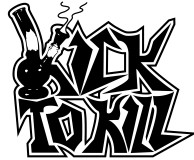
“Discovered” and first recorded in 1959 by urban folkie John Cohen, Holcomb sang in a tense, piercing, bristly high tenor that raises goose bumps; Cohen coined the phrase “high, lonesome sound” to describe the style, which makes Bill Monroe sound like Tony Bennett. Holcomb’s unflinching, unadorned banjo attack serves as a constant reminder that the instrument came here from Africa and was first played in this country almost exclusively by blacks; the rise and fall of his two-finger playing on blues like “Graveyard Blues” and “Mississippi Heavy Water Blues” works in perfect conjunction with his moaning, crying vocals. He also played his own idiosyncratic version of slide guitar (“Knife Guitar”) and even dabbled in sawing fiddle (“Rock Island Prison”) and pulsing harmonica (“Barbara Allen Blues”). Though he came to recording so late that his genre had already become pretty much carved in stone by radio and records, Holcomb’s Appalachian ballads, black blues and occasional poppish ditties seem totally uninfluenced by conventional ideas about how a song “should” be done; rather, his music represented his own singular take on the traditional style of the region where he grew up, shaped early by his own hardscrabble life and religion and pretty much untouched after that. He interprets even the most common material with the finality of a trap door slamming shut, making it unlikely you’ll ever remember the song any other way once you’ve heard his version. All of these tracks (from 1961–73) are appearing on CD for the first time; some of the later ones-he died in ’81-are not up to his best work, but it’s amazing how one voice and instrument, and sometimes just his voice alone, can fill a room, and continue to haunt it long after the music’s over.
By John Morthland
HERE
 Don't Watch That
Don't Watch That
